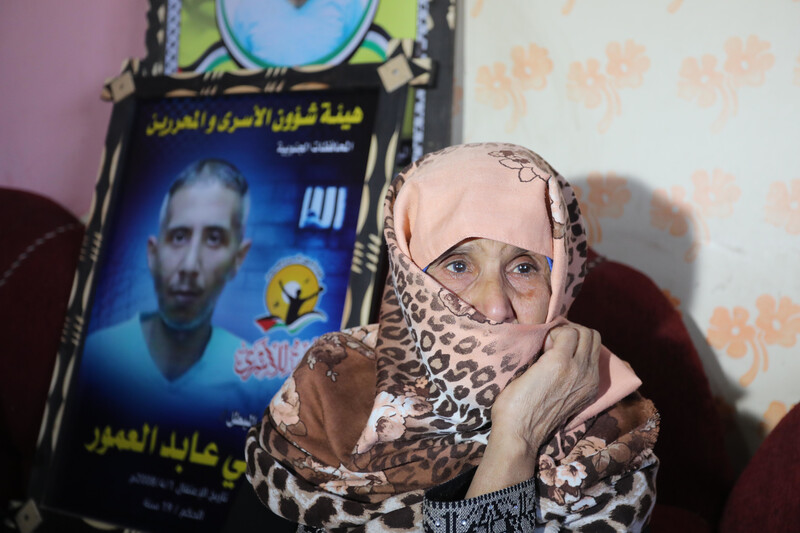The Electronic Intifada 5 October 2023

Israel has denied Suad al-Amour the right to bury her son Sami, who died in prison almost two years ago.
APA imagesWhen Suad al-Amour visited her son Sami in jail during 2021, she did not realize it would be for the last time.
Sami appeared relatively well on that occasion. Yet his health deteriorated over the next few months.
Born with a heart problem, he had high blood pressure behind bars and complained of vomiting and exhaustion.
Doctors recommended that he undergo urgent surgery for blocked arteries. The Israeli authorities first transported him from one prison to another before eventually taking him to hospital.
In November that year, Sami died at the age of 39. Human rights groups have argued that he was a victim of medical negligence.
Israel has retained Sami’s body. As a result, his family has been prevented from organizing his funeral.
Suad, his mother, has only one wish: to see Sami’s body and say a final goodbye before his burial.
“I am demanding that my son’s body is brought back to Gaza so that I can hug him and visit his grave,” Suad, 65, said.
Sami grew up in the Deir al-Balah area of Gaza. In April 2008 Israeli troops who had invaded Gaza arrested him, along with his brother Hamada.
A fighter with Islamic Jihad, Sami was convicted of attempted murder and sentenced to 19 years imprisonment. Hamada was jailed for 12 years and eventually released.
Israel treats all resistance to its brutal military occupation of the West Bank and Gaza as terrorism.
Making pain worse
After Palestinians die in jail, Israel often worsens the pain of their families.
Hundreds of Palestinian bodies are being held by Israel.
These are the bodies of Palestinians killed directly by Israel or who died in prison. They are either kept in refrigerators or in the so-called “cemeteries of the numbers.”
Faris Baroud died in an Israeli jail in February 2019. He was 51.
A prisoner for more than half his life, Faris had been arrested in 1991. He was condemned to life imprisonment for killing an Israeli and injuring three others.
Seventeen years of his jail term were spent in solitary confinement.
Faris – born in Gaza City’s Beach refugee camp – should have been freed under a US-brokered deal from 2013. It was supposed to ensure the release of all prisoners locked up before the Oslo accords were signed by Israel and the Palestine Liberation Organization in the 1990s.
Israel, however, blocked the release of the final 30 prisoners. Faris was among that group.
His mother Rayya Obaid had prepared for his release.
“She had painted the family home and got a bedroom ready for Faris,” his niece Tahrir said. “She had got new furniture, hoping that he would be freed and would get married.”
His mother’s hopes were never realized. She died in 2017.
Israel has retained Faris’ body since his death.
Tahrir said that Israel’s refusal to release her uncle’s body means “our family is still going through major distress.”
Basic right
Saadi al-Gharabli died in July 2020 at the age of 75. He had spent 26 years behind Israel’s bars.
A resident of the Shujaiya neighborhood in Gaza City, Saadi was the oldest Palestinian prisoner before his death.
He was given a life sentence following a 1994 conviction for involvement in the killing of an Israeli soldier.
The first 12 years of his imprisonment were spent in solitary confinement. One of his 10 children was killed by the Israeli military in 2002.
Although he had prostate cancer and several other medical issues, the Israeli authorities did not allow his family to visit him from 2001 onward. Since his death, Israel has kept his body in a “cemetery of the numbers.”
Saadi’s son Issam noted that being able to hold a funeral for a family member is “one of the most basic rights.”
“It is guaranteed by international law and by religious laws and conventions,” he said.
Israel is denying the family that basic right.
Yasmin Abusayma is a writer and translator from Gaza.





